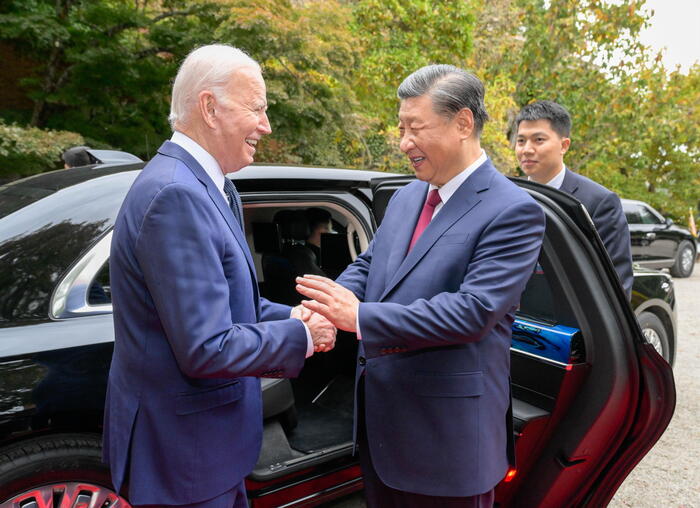Chinese President Xi Jinping launched this Wednesday an insistent defense of his country's progress in respecting human rights, in a virtual meeting with the UN High Commissioner for Human Rights, Michelle Bachelet.
The United Nations representative is in China on a week-long visit that has as its axis a tour of the Xinjiang region, in the northeast, to try to learn about the treatment received by the Uyghur ethnic group and other Muslim minorities, among government complaints and NGOs of serious abuses against these communities.
More information
'Xinjiang Police Files' |
Thousands of secret documents put a face to the Chinese repression of the Uyghurs: prison regime, imprisoned children and shoot to kill
Bachelet's visit coincides with the publication, by a media consortium from 11 countries, including EL PAÍS, of thousands of photographs and documents that illustrate Beijing's campaign of systematic repression against the Uyghur minority.
Hundreds of thousands of people were sent to centers that Beijing says were vocational training schools to fight extremism and that human rights advocates say are re-education centers where inmates are frequently subjected to mistreatment.
China maintains that, in any event, most of these facilities have been closed or changed use and the inmates have returned home.
But foreign NGOs maintain that at least some of them continue to operate as prisons or high-security centers, and that “graduated” inmates are in many cases forced into forced labor in industries such as cotton.
Without mentioning at any time Xinjiang or the visit of the senior official to the region, the Chinese president assured that the development of human rights in China "is adjusted to national conditions."
The Chinese concept emphasizes rights such as subsistence and development, which are more necessary in economies that are not fully advanced.
"Deviating from reality and literally copying other countries' models would not only not fit our local conditions, but would lead to disastrous consequences," Xi said in a statement released by the Foreign Ministry in Beijing.
"In the end, it would be ordinary people who would end up suffering."
The Chinese president acknowledged that "there is no ideal country" in respect of human rights, but stressed that "there is also no need for a 'master' who gives orders to other countries", in apparent reference to the criticism that the trip of the High Commissioner has received from representatives of the Governments of Washington and London.
On Tuesday, after the publication of the new documents on Xinjiang, the spokesman for the US State Department, Ned Price, considered that it was "a mistake" that Bachelet had "accepted the visit, given the circumstances."
Barrier-free access
The former Chilean president began her visit to China in the southern city of Guangzhou on Monday, the first by a UN high commissioner to the Asian giant since the one made by Louise Arbor in 2005. Critics of the trip, including nearly 200 human rights, consider that the tour does not meet the necessary conditions for Bachelet to have "unrestricted access" - the initial objective of the visit when negotiations began three years ago - and to be able to discern with her own eyes the true situation of the Uyghurs.
Bachelet, who on Wednesday also gave a speech at the University of Canton on the importance of multilateralism and will complete her visit on Sunday with a press conference, will go to the cities of Urumqi and Kashgar in Xinjiang, within what China calls "a circuit closed”, a bubble to avoid possible contagion by covid.
At a meeting with the senior official in Guangzhou on Monday, Chinese Foreign Minister Wang Yi expressed his hope that the visit would serve to "clear up misinformation" about respect for human rights in the world's second-largest economy, and he accused "certain anti-China countries and forces" of spreading "slander" and "spreading bogus attacks to tarnish China's image."
"Its purpose is to politicize and use the issue of human rights as a weapon," he said, according to the version released by the country's official media.
Following her meeting with Xi, Bachelet tweeted that “meetings with President Xi and senior officials have been valuable in directly addressing Chinese and global human rights issues and concerns.
For development, peace and security to be sustainable: human rights, justice, the inclusion of all without exception must be protagonists”.
Follow all the international information on
and
, or in
our weekly newsletter
.

/cloudfront-eu-central-1.images.arcpublishing.com/prisa/FN5YF75SKS7EU2DTAIAE32JR4I.jpg)




